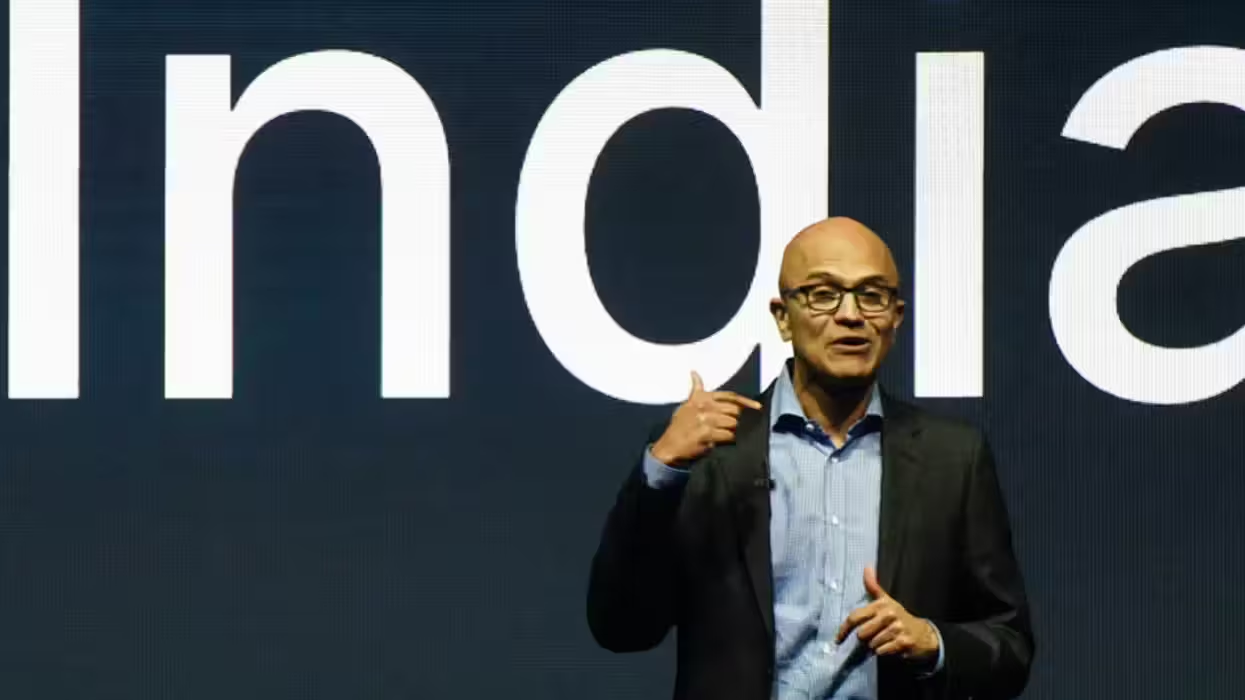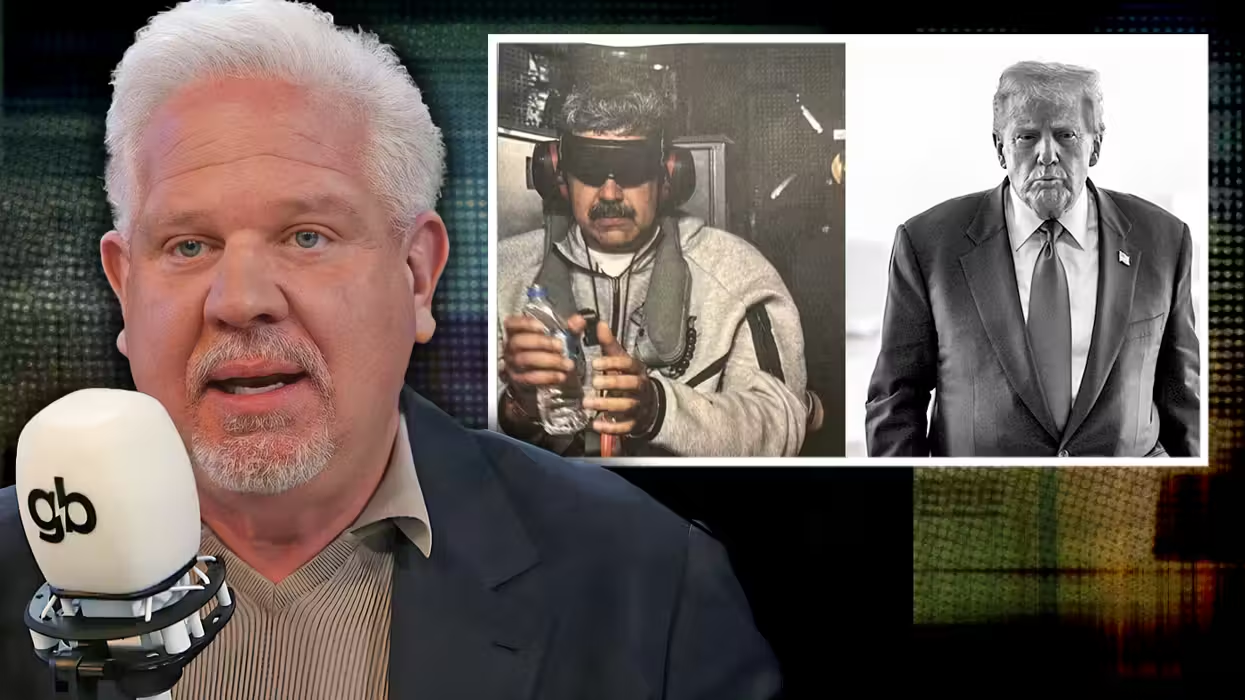
© 2026 Blaze Media LLC. All rights reserved.
Dealerships Fear Costly Fuel Efficiency Standards Will 'Price Out Millions' of Consumers
February 15, 2012
"Fuel economy standards can't just be some number picked out of thin air."

American auto dealers are protesting new fuel economy rules that, they claim, would “price out millions of buyers from the new-car market,” thereby jeopardizing the supposed benefits of the environmental program as well as the auto industry’s chances of a comeback, Fox News reports.
The Obama administration has been campaigning almost nonstop for new fuel efficiency standards that officials claim “pay for themselves.” As the theory goes, consumers would pay more for a new vehicle, but the higher cost would be offset by what they’d save in fuel.
However, changes from two sets of fuel efficiency standards could add $3,000 to the price of a new car by 2025. And if consumers can't qualify for a loan up front, the rest is fantasy cash, the National Automobile Dealers Association (NADA) argues. Consequently, consumers mindful of the stumbling economy will instead turn to “gas-guzzling” vehicles or put off buying a new car altogether -- leaving the “fuel-efficient marvels” to collect dust on car lots all across the country.
"Where's the environmental savings ... if you can't get the older cars off of the road?" NADA spokesman Bailey Wood said.
The NADA estimates that by 2025, 6.8 million drivers will no longer qualify for a new-car loan if the proposed fuel efficiency standards take effect, Fox reports.
“The objections were filed Monday as the federal government closed its comment period for the proposed regulations,” writes Fox’s Judson Berger. “The next step is to review the comments and finalize the rule. The government already mandated an average fuel economy of 35.5 miles per gallon by 2016.”
The latest proposal aims to achieve a 54.5 miles-per-gallon standard by 2025.
“The Obama administration brought some of the biggest automakers in the country on board with the goal last year before rolling out the new target. And they've got plenty of support from advocacy groups,” Berger writes.
“The Consumers Union sided with the administration, submitting comments Monday claiming the changes would save most buyers money ‘in the very first month of ownership,’” he adds.
However, auto dealers are hoping that they can delay the the process until they've had time to properly evaluate the financial impact the changes will have on consumers.
"Fuel economy standards can't just be some number picked out of thin air. They have to be based on consumer demand," Wood said. "If dealers can't sell these vehicles, then you defeat any other benefits you were seeking."
The NADA estimate is based on the number of drivers who would be “priced out” because the new efficiency rules would add approximately $3,000 to the price of a new vehicle by 2025.
“That figure combines the administration's cost estimate for fuel economy standards from 2012-2025,” Berger writes. “The NADA, though, says that estimate doesn't factor in certain elements like advertising, and pegged the actual increase at more like $5,000.”
But even disregarding the actual price, the group believes that literally millions of consumers would still be “priced out” by the new efficiency standards.
"For most households, a light-duty car or truck is the most expensive consumer purchase they make," the NADA said in a statement to the Environmental Protection Agency (EPA) and National Highway Traffic Safety Administration (NHTSA), adding that most consumers have to borrow in order to purchase a car.
During the loan approval process, the group said, "it matters not whether the new vehicles in question offer improved fuel economy performance characteristics compared to the transportation options currently being used by prospective purchasers. ... All that matters is whether prospective purchasers are creditworthy."

The National Highway Traffic Safety Administration
Nevertheless, environmental and consumer groups are gushing over the new fuel economy standards.
The Consumers Union submitted its comments on Monday, claiming – unsurprisingly -- that the fuel savings from “efficient vehicles” far outweigh the increase in price.
"The proposed target is reasonable and provides excellent value for consumers," the group said.
The Obama administration, in its roll-out last year, said the 2017-2025 changes would add about $2,000 to the price of a new vehicle by 2025, Fox reports. The administration believe that consumers would in turn save anywhere between $5,200 and $6,600 on gas over the life of the vehicle.
"The discounted fuel savings will offset the higher vehicle cost in less than 4 years, and fuel savings will continue for as long as the consumer owns the vehicle," the announcement said.
Although auto manufacturers are mostly supportive of the changes, they continue to express concerns about consumer response.
A statement from Mitch Bainwol, head of the Alliance of Automobile Manufacturers, said the "ultimate question" is whether consumers would pay more for the new cars.
"This unprecedented effort and expense will further our country's energy and environmental goals, but only if consumers purchase the more fuel-efficient and climate-friendly, but more expensive, vehicle technologies," Bainwol said.
In its comments to the EPA, the Alliance asked that the government allow for a review of the new standards halfway through the 2017-2025 period -- and to allow them to adjust as needed.
However, the NADA was a little more blunt with its request: stop trying to plan fuel efficiency so far in advance.
"Why is the Obama administration setting fuel economy standards as far as 14 years in the future?" Wood asked. "In 14 years, my 2-year-old will be driving. How can you adequately determine what consumer demand (will be), let alone what people will be driving, in 2025?"
He also said his group wants the EPA out of the process, leaving the decision to NHTSA.
Want to leave a tip?
We answer to you. Help keep our content free of advertisers and big tech censorship by leaving a tip today.
Want to join the conversation?
Already a subscriber?
more stories
Sign up for the Blaze newsletter
By signing up, you agree to our Privacy Policy and Terms of Use, and agree to receive content that may sometimes include advertisements. You may opt out at any time.
Related Content
© 2026 Blaze Media LLC. All rights reserved.
Get the stories that matter most delivered directly to your inbox.
By signing up, you agree to our Privacy Policy and Terms of Use, and agree to receive content that may sometimes include advertisements. You may opt out at any time.






